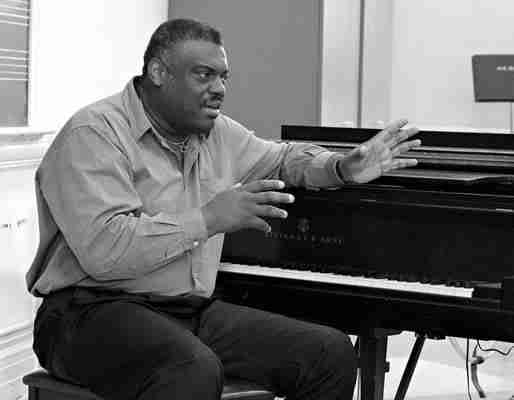
By Claudio Botelho
They’re two different entities, but equally enticing in remaining far and above their peers. They’ve transcended their gender for long and seriously stretched their proposed boundaries into other realms, and the passing of time has only made they garner more recognition.
Bill Evans was more erudite, at least at the delivery for consumption. The Beatles’ music was purposely done to younger and wider audiences, and both musical legacies have acquired an uncanny transcendence by achieving a timeless reputation of unsurpassed quality.
These two phenomena of our time are unique. No rock band (was the Beatles a rock band?) or piano trio were ever like them, even at a glance.
When the Beatles came out, I was already irreversibly committed to jazz. I started with Dave Brubeck and Oscar Peterson, and Bill Evans wasn't yet in my foreseeable future, but this alone was all I needed to be away from that British group or any other of its kind whatsoever.
But how could I overlook their ubiquitous presence? It was an impossible mission, for the simple reason they were everywhere. As a natural consequence, they were just present in my life, but I wasn’t a repository of any of their influences, or so thought I. If their music were ever listened attentively by me, it was through the good services of jazz musicians (Ramsey Lewis comes to my mind). Otherwise, their tunes would pass me unnoticed, as much as, to be truthful, any other kind of music was it popular or classic. I was already very hooked to the jazz language.
Until the arrival of the album “Sgt. Pepper’s Lonely hearts Club Band”, The Beatles were just one more pop musical group among many others for me. But then, all of a sudden, I was embedded in songs like “With a Little Help from my Friends”, “Getting Better”, “She’s Leaving Home”, “Being for the Benefit of Mr. Kite”, “Lovely Rita”, “Good Morning, Good Morning”, “Lucy in the Sky with Diamonds”, the fantastic impressionist arranged “A Day in the Life” and five others. I was taken aback; shocked I was!... I surely didn’t know that, music wise, what inside that production was out of the reach of John, Paul, George and Ringo or even of the fifth Beatle, but I gathered I was in front of something seriously BIG!
Besides being in front of a musical presentation as dissimilar as any I had ever heard so far, I couldn't find any link between the compositions as if they were done by entirely different minds! Each one had a richness all its own and, so, seemed unique to me. By that time, I was halfway in my teens and the “needle” of my case-type monaural Philips disk player was worn out playing that masterpiece.
Keep to you this: Sgt. Pepper’s was the first and the last album of its kind I've ever brought home to listen to…
Bill Evans. To start with, he was responsible for bringing people from the kitchen to the living room. So, bassists and drummers are now on par with sax, trumpet and piano players. His 1961 trio with Scott LaFaro and Paul Motian was the starting point. I don’t know the extent of the role of Lafaro’s exquisite playing: he certainly wasn’t a common bass player and the way he treated his instrument needed more space to bloom. Was Evans’ brain the one behind this revolution or was he simply an attentive witness to a phenomenon which needed to follow its course? Did he, keenly, spot the enhancement LaFaro’s performance could bring to his group and to his music altogether and, then, just put it to work?
Certainly, a no-leader-three-leader group would become much stronger, provided it had some kind of invisible guide to put everything together. Evans leadership spoke through his enormous musical talent, no matter how well mannered he was as a human being: never authoritative, but an authority himself.
Surely, that “three-leadership-group” of his and its inherent symbiosis brought about the best of everybody. His cohorts have become much more part of the whole than ever before… (Some utilitarianism was welcome here…)
Of course, to be the first to achieve this would imply having a personal character of a certain kind; it should be honest enough to give more ground to his partners and not be afraid of losing relevance. Some humbleness was required here; a thing geniuses are commendably known to have. …
Was it the way things went by? I don’t know. Maybe, about this I’m the most ignorant man around…
What I know is that his trio was the beginning of a new trend which has reigned ever since. Wasn’t Evans such a formidable talent, this alone would have been enough to put his name in the top echelon of jazz.
About him, there’s not anything new I can address; everything has been said about this giant, so… (I’ve heard that Alain Broadbent, when listening to him for the first time, busted into tears and decided to follow his steps).
Since his early passing, we’ve been trying to find someone who could fill, at least partly, the enormous gap he left behind to fulfill our needs. From then on, we’ve examined people like Fred Hersch, Enrico Pierannunzi, Lynne Arriale, Alan Broadbent, Bill Charlap, Tord Gustavsen, Roland Hanna, Eddie Higgins, Hank jones, Andy Laverne, Bobo Stenson, Bill Mays, Walter Norris, Alan Pasqua, Gonzalo Rubalcalba…
Do you know what? Heeeeeeeeelp!... The gap remains unfulfilled, and there’s nothing on the horizon to show otherwise.
But, alas, BillBeatles? Why is this?
All this is just to say these are two musical entities which I feel will never be superseded, no matter how things evolve, no matter what progress man can bring to this divine art named music. This is the proof of the existence of something which can’t be smelled, viewed or touched; something science will never explain, which is well beyond any dissection ever to be tried…
